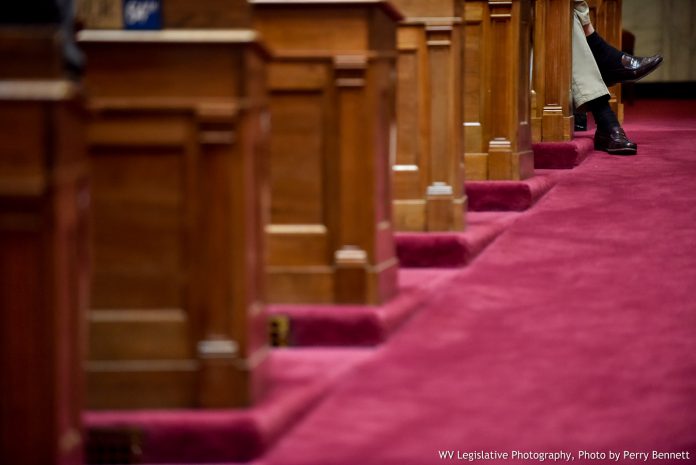As of 4 p.m., Wednesday, February 10, 2010, the 29th day of the 79th Legislature’s 2nd Regular Session, 1,145 bills have been introduced in the House. Of those, 45 passed and have been sent to the Senate for its consideration. The bills passed include:
House Bill 2503 would require licensed tattoo artists to inform patrons, prior to performing the tattoo procedure, of the potential problems that a tattoo may cause in relation to the clinical reading of magnetic resonance imaging (MRI) studies. It would also require the State Department of Health to prepare written forms pertaining to the potential problems.
House Bill 2663 would expand the power of municipal parking authority officers by allowing them to ticket all parking violations, not just expired meters.
House Bill 2773 would increase the monetary penalties for selling tobacco products to minors. Currently the fine for first-time offenders is $25, which would be raised to $100. Also, providing tobacco products to minor may be grounds for dismissal by an employer.
House Bill 4128 would adopt recent amendments to the National Association of Insurance Commissioners (NAIC) model regulation concerning the standards to be considered by the West Virginia Insurance Commissioner in determining whether an insurer is in hazardous financial condition. It would also revise the corrective actions the commissioner may require of an insurer.
House Bill 4134 would remove non-utilized code sections from the West Virginia Code. The bill repeals code sections related to the continuation of certain boards and agencies that are now superfluous as result of the provisions of the West Virginia Performance Review Act.
House Bill 4140 would reorganize and update the law governing the practice of physical therapy. It would increase the number of board members from 5 to 7, where one of the new members must be a licensed physical therapist assistant and the other must a citizen member. Also, it would increase the number of years a member must be licensed from 3 to 5 years. Additionally, it defines terms, clarifies powers of the board and lists unlawful acts.
House Bill 4166 would expand the age a currently employed, paid firefighter can seek appointment. The current statute prevents individuals from being employed as firefighters if they are under the age of 18 or over the age of 35 at the date of his or her application. This amendment would allow firefighters over the age of 35 to transfer to a different station without violating state law.
House Bill 4194 would put the Division of Criminal Justice Services under the oversight of the Department of Military Affairs and Public Safety.
House Bill 4247 would provide counties the discretion to accompany an electronic poll book with a printed poll book. The bill changes language in the law to say, “a printed poll book may accompany the electronic poll book to each precinct,” instead of “shall.”
A Sampling of Bills Introduced In the House
House Bill 4340 would protect academic speech of professional educators. The bill states a West Virginia public school employee cannot be disciplined or denied employment based on his or her speech, writing, or research relating to public issues.
House Bill 4341 would authorize the electronic collection of tolls by the West Virginia Parkways, Economic Development and Tourism Authority. It would also establish penalties for nonpayment or damage to the facilities.
House Bill 4356 would allow a nonresident to have an additional 10 days to pay his or her fine before the magistrate court sends notice to the Department of Motor Vehicles (DMV). The bill would allow 90 days following the date the citation was issued. This applies to any motor vehicle violation.
House Bill 4374 would establish the Caregiver’s Consent Act. This bill states that unless minors are placed in the custody of the Department of Health and Human Resources (DHHR), a caregiver who possesses and presents a notarized affidavit may consent on behalf of a minor to permit medically necessary health care and treatment.
House Bill 4380 would provide eligibility for a license to teach in public schools for candidates who are not United States citizens. Candidates may be granted a permit to teach after obtaining a satisfactory score on a test of English language proficiency, providing evidence of a resident alien card and meeting other requirements established by the state board.

